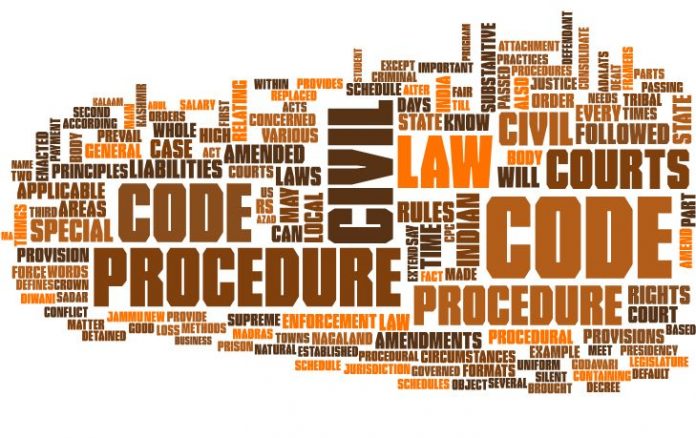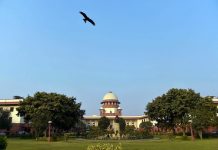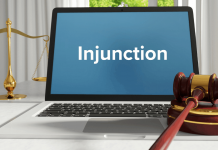This article is written by Prabha Dabral from IMS Unison University, Dehradun. This article deals with Order 6 Rule 17 CPC. It discusses the rules relating to the amendment of pleadings and the consequences of failure to make appropriate amendments.
It has been published by Rachit Garg.
Table of Contents
Introduction
The provisions regarding pleadings are found under Order VI of the Civil Procedure Code (CPC), 1908. A pleading is the written form of a statement that is drawn up by both parties to a suit. The statements in writing include the contentions and other details that the opponent needs to know to prepare his/her case for the trial. Statements given by the plaintiff are called a plaint, and the same given by the defendant is called a written statement.
Pleading serves the purpose of bringing the parties to a definite issue so that there will not be any surprises at the hearing. It also diminishes delay, as both parties are aware of each other’s contentions and are clear on the real question of the parties to a suit.
Sometimes, to maintain this clarity regarding the real issue between the parties, an amendment of pleading becomes necessary. Hence, the provisions under Order VI Rule 17 of the CPC come into the picture. This article provides general information on the concept of amendment of pleadings and also highlights the need and object behind it.
Importance of pleading and its relevance to Order 6 Rule 17 CPC
The concept of amending pleadings can be easily understood if we know the purpose of a pleading. Pleading not only defines the issues between the parties but also helps in determining which of the parties has the burden of proof. One can say that it plays an important role throughout the whole process of litigation, as it also helps in determining the range of admissible evidence that the party should adduce at trial.
The sole purpose of it is to make each party fully aware of the issues that will be argued so that each party can present appropriate evidence for them.
Rule 17 of Order VI is applicable in a situation where it becomes necessary for a party to make some changes to the pleading. This refers to the process of amending a pleading, which is explained in this article.
Amendment of pleadings : Order 6 Rule 17 CPC
The courts decide a case on the basis of its merits, i.e., on the basis of facts, proof, and evidence. Suppose the merits of the case are not completely mentioned in the pleading of a certain case, then the decision made by the court cannot be considered complete justice as the merits were not completely mentioned. It may also happen that the merits that were not mentioned held an important aspect regarding the case.
Keeping this in mind, the courts are empowered to grant permission to amend the pleadings. Hence, the concept of amending pleadings steps in. Order VI Rule 17 of the CPC grants permission to the parties to the case to amend their pleadings at any stage of the proceedings.
The proviso under this rule says that after the trial has commenced, an application for amendment shall not be allowed. However, it might be allowed if the court thinks that, in spite of due diligence, it was not possible for the party to raise the matter before the trial commenced. This statement can be explained using the following example. A person by the name “A” files a lawsuit against “B.” The suit was filed in a hurry because it had some limitations. So, after filing the suit, A realises that there are some important facts, proofs, or documents that he could have added to his pleading earlier but could not do so as they were not in his knowledge at that time. In this case, the court might give “A” permission to amend his pleading. It is the discretionary power of the court to grant permission or not.
Such application is not governed by the law of limitation. That means there is no limitation available against this provision, and an application to amend the pleading can be granted at any stage of the proceedings.
Amendment Act of 2002
The proviso to Rule 17 inserted in the Amendment of 2002 restricts the power of the court to allow amendments of pleadings at any stage of the proceedings. It says that the court cannot grant permission for amendment after the trial has commenced. However, the court may allow the amendment if it thinks that, even after due diligence, it was not possible for the party to raise the matter before the trial.
The object of Rule 17 CPC
The object of Order VI Rule 17 is to empower the courts to try the case on its merits and allow all those amendments that are necessary for determining the real controversy. But it should never cause any injustice to the other party.
Courts exist for the purpose of doing full and complete justice to the parties, and that can be done only when the real issue between the parties is heard. Hence, they are empowered to grant amendments to pleadings. The purpose is to determine the real issue between the parties and not punish them for their mistakes or negligence.
In Rameshkumar Agarwal v. Rajmala Exports Pvt. Ltd. (2012), the Supreme Court explained the object of the amendment of pleadings. It was held in this case that the courts must not refuse any amendments that are bona fide, necessary, and honest. The Court further stated that the object of this provision is to allow both parties to amend pleadings in a just manner. The basic consideration for permitting amendment should be to avoid a multiplicity of litigations.
Valid reasons to amend the pleadings
Below are some of the instances wherein an amend to a pleading will be valid
- The proposed amendment is necessary to determine the real controversy in the suit.in
- The proposed amendment shortens litigation between the parties.
- An incomplete cause of action is mentioned in a suit.
- Some necessary facts were not included at the time when the suit was filed.
- Some wrong facts were mentioned in the pleading. For example, the property description mentioned is wrong.
Who can apply
Both parties can apply for an amendment to the pleading. Amendments can be made in the plaint by the plaintiff as well as in the written statement by the defendant. In the event that there is more than one plaintiff or defendant in a suit, then one of the plaintiffs or defendants can make such an application.
Notice for the amendment application
- When an application is made for the amendment of a pleading, granting such an amendment without hearing from the other party would be wrong. So, when an amendment is made to the plaint, a notice of the amended plaint must be served to the defendant.
Discretion of court
The Rule confers wide discretionary power upon the court to allow either of the parties to amend their pleadings. This discretion is supposed to be exercised by combining the judicial mind with well-established legal principles. The general rule says that leave to amend will be granted when the court has to take out the real controversy between the parties.
While allowing the party to amend their pleadings, a court generally considers these two aspects
- Is amendment necessary to know the real controversy between the parties?
This condition should be satisfied before granting leave to amend pleadings. It can be done by answering this simple question: Is the amendment necessary to determine the actual question in issue between the parties or not? Even if the court thinks that the party seeking to amend the pleading will not be able to prove that amended plea, he/she must be allowed the amendment.
- Is there any injustice done to the other party if the court allows the amendment?
Amendments can be allowed only if they can be made without doing injustice to the other party.
Order 6 Rule 17 CPC : not exhaustive
The provisions under Order VI Rule 17 are not exhaustive in nature, i.e., the provisions are not exhaustive of the power of the court. It means that there can be other grounds for which an amendment can be granted, but they do not come under this Rule. Since the power of amendment is inherent in the court, one can resort to Section 151 of the Code for the amendment when Rule 17 does not apply.
Reasons for refusing the amendment of pleadings
If an application for an amendment is rejected, then filing a second application based on the same facts is not maintainable. But if the circumstances change, the application may be filed again. The following are the reasons for which the court may refuse such an application-
- The point of the amendment is not necessary for determining the real question of the controversy
- The amendment is of such a nature that it completely changes the fundamental character of the suit.
- The proposed amendment of a claim or relief is barred by time as per the limitation clause
- The proposed amendment takes away the legal right accrued in the favour of other parties.
- The application of the amendment was not made in good faith.
Appeal
No appeal lies against an order allowing or disallowing an application for amendment. This is so because such an order is neither a decree under Section 2(2) nor an order against which an appeal can be filed under Section 104 read with Order 43 of the Code. However, such an order can be questioned when an appeal is filed against a decree.
It is open to the aggrieved party to challenge such an order by filing a writ petition under Article 226 or Article 227 of the Constitution of India, 1949. Generally, a high court will not exercise its jurisdiction to interfere with the order of the trial court until and unless such an order has caused any serious prejudice to the aggrieved or has caused a miscarriage of justice.
Failure to amend Rule 18 CPC
After a party is granted leave for amendment, he/she is given a specified time period within which the amendment has to be made. In case, the time limit is not specified, it is presumed that within 14 days from the date of order, the amendment is to be made. If the party has not made any such amendments within the time, he shall not be permitted to amend after the expiry of the specified time unless the court extends the time.
The failure to amend does not result in the dismissal of the suit. It is up to the discretion of the court to extend the time for amendment even if the specified period has expired. In an appropriate case, the court may allow the party to amend in spite of the delay in the payment of further costs.
In the case of Pahali Raut v. Khulana Bewa (1985), the Orissa High Court held that “we cannot be oblivious of the facts of life, namely the parties in courts are mostly ignorant and illiterate – unversed in law. Sometimes their counsel are also inexperienced and not properly equipped”
In B.K.N. Narayana Pillai v. P. Pillai and Ors. (2000), the Supreme Court held that a mere delay in filing the application cannot be a valid ground for its rejection. It was held that in cases where the other party can be compensated by costs for the delay, the application must not be rejected. It was stated that the role of courts is to promote the ends of justice. The power of courts to allow amendment in pleadings is to provide full justice to the parties and not to defeat them with something that can be easily rectified.
Recent Judicial Pronouncement on Order 6 Rule 17 CPC
Life Insurance Corporation of India (LIC) vs. Sanjeev Builders Pvt. Ltd. And anr. (2022)
Facts
In this case, a suit for the specific performance of the contract was filed before the Bombay High Court. The plaintiff here filed an application for amendment of the plaint before the Court. Originally, the suit claimed damages of 1,01,00,000/- and by the amendment, the damages were prayed for 4,00,01,00,000/-. The Court allowed the application for amending the plaint.
Being aggrieved and dissatisfied with the above order, the defendant filed for an appeal against this order passed by the High Court of Bombay. He submitted that the High Court should not have permitted the plaintiff to amend the plaint, that too, after a period of thirty-one years. The case was then moved to the Supreme Court.
Held
The Supreme Court held that a mere delay could not be a ground for rejecting the application for amendment of the plaint. However, the delay in filing the application can be compensated by costs. The Court dismissed the appeal and laid down the following guidelines regarding the amendment of pleadings.
- All the amendments are to be allowed if they are necessary for determining the real question of the issue between the parties. But it should not cause any injustice to the other side.
- The prayer for amendment is to be allowed if:
(i) The amendment is required for the proper adjudication of the matter.
(ii) To avoid multiplicity of proceedings.
- The amendments are not generally required to be approved if-
(i) The amendment raises a time-barred claim.
(ii) The amendment changes the nature of the suit.
(iii) The prayer for the amendment is mala fide.
(iv) The other party is losing any of its valid defences if the amendment is allowed.
- Where the amendment enables the court to render a more satisfactory decision, an application must be allowed.
- The application for the amendment is to be allowed if it is intended to rectify the absence of certain material particulars in the plaint.
- The amendment is justifiably allowed if it is intended to rectify the absence of particulars in the plaint.
- If there is any delay in applying for the amendment, it can not be rejected solely on this basis.
- The amendment sought must only be made regarding the relief in the plaint. Amendments must be made to o those facts which are already pleaded in the plaint. If it changes the nature of the suit or the cause of action, then it must be disallowed.
- The court must be liberal in its approach when the amendment is sought before the commencement of the trial.
Conclusion
Pleadings are the backbone of any legal suit. It guides the parties in forming their arguments. The provisions of Order VI of the Code of Civil Procedure lay down the fundamental rules of pleading. Rule 17 under this Order speaks about the amendments to the pleading. These provisions are there with the aim of striking a balance in society and achieving the ultimate end of justice.
References
- https://blog.ipleaders.in/amendment-of-pleadings/
- https://www.lawnotes4u.in/notes-on-pleading-in-cpc-and-its-essential-objects-rules-and-amendment-etc/
- https://www.taxmann.com/post/blog/know-all-about-drafting-pleadings-and-appearances-in-cvil-procedure-code/?amp
- https://lawcorner.in/fundamental-rules-of-pleading/
Students of Lawsikho courses regularly produce writing assignments and work on practical exercises as a part of their coursework and develop themselves in real-life practical skills.
LawSikho has created a telegram group for exchanging legal knowledge, referrals, and various opportunities. You can click on this link and join:
Follow us on Instagram and subscribe to our YouTube channel for more amazing legal content.
 Serato DJ Crack 2025Serato DJ PRO Crack
Serato DJ Crack 2025Serato DJ PRO Crack











 Allow notifications
Allow notifications


